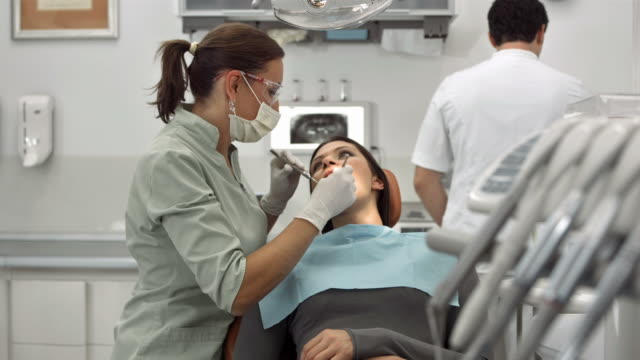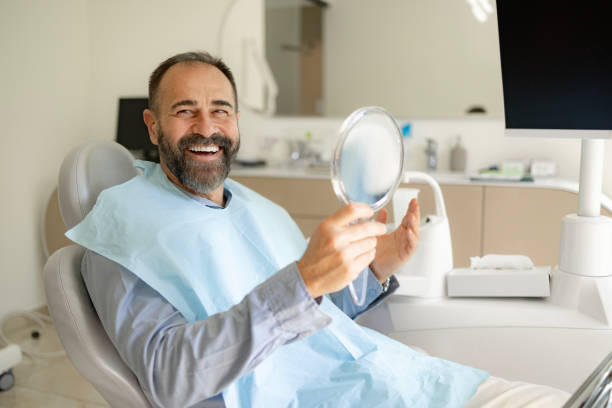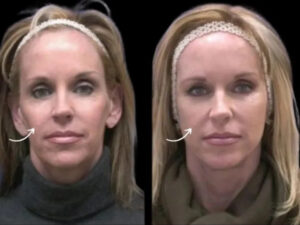
dentist holding toothpaste and showing thumb up in dental clinic
The wisdom teeth are also referred to as the third molars, constitute the final set of teeth to grow in the mouth of a human. Most often, they develop between the age of 17 to 25 These teeth are the subject of interest and concern for dentists and patients. Some people do not have difficulties in their wisdom teeth they are for the majority of people, and may cause discomfort or oral health issues and even the need to extract them. Knowing why wisdom teeth can result in problems is vital to maintaining long-term health of your teeth.
What Are Wisdom Teeth?
Wisdom teeth form the third molars that are located in the back of the mouth. There is with one per quadrant. Anthropologists have suggested wisdom teeth were essential for the early people with larger jaws as well as food that was mostly raw, such as foods like nuts, plants as well as tougher meats that demanded the ability to chew with greater force. But, due to modern-day diets and smaller jaw size the wisdom teeth are becoming more difficult for many.

Common Issues Caused by Wisdom Teeth
1. Impacted Wisdom Teeth
The most frequent issues that arise from wisdom teeth impaction. The teeth that are impacted happen due to the lack of room in the jaw to allow teeth to grow properly. The result is teeth getting stuck beneath the gum line, or developing in an unnatural angle. Wisdom teeth that are impacted can result in pain, swelling and even an infection.
2. Crowding and Alignment Issues
As wisdom teeth grow and are pushed against adjacent teeth, leading to an imbalance and crowding. This is especially problematic those who’ve previously received orthodontic treatment as wisdom teeth could reverse consequences of braces and other procedures to correct the problem. The resulting crowded teeth can be difficult to keep clean and increase the likelihood of getting cavities and gum diseases.
3. Gum Disease and Infection
Wisdom teeth with partial eruption and only visible over their gum line can be susceptible to contracting gum infections. The gum tissue flap which is often formed over the tooth that is partially erupted can hold food particles and bacteria. This can cause swelling and infection, which is called pericoronitis. Its symptoms are swelling, pain in the mouth, bad breath, as well as difficulties opening your mouth.
4. Tooth Decay
Wisdom teeth can be found behind the mouth. This makes them difficult to access with the floss and toothbrush. These teeth are more vulnerable to getting cavities. Furthermore, if an wisdom tooth is not completely extruded, food particles may get trapped in the tooth, resulting in an ideal environment for the growth of bacteria. As time passes, decay that is not treated could affect not only the wisdom tooth itself, but adjacent teeth.
5. Cysts and Other Complications
Sometimes the wisdom tooth that is impacted may lead to the growth of tumors or cysts within the jawbone. Although they are not common but they can result in significant destruction to nearby teeth, bone, as well as nerves if they are not treated. The early detection of dental issues through regular imaging is vital to prevent the possibility of suffering from these issues.
Symptoms That Indicate Wisdom Teeth Problems
Most people do not notice the first signs of wisdom teeth when they appear to be developing. But, there are signs an issue could be developing:
- A persistent tenderness or pain on the inside of the mouth
- The jaw is swelling or gums
- Inflamed, red, or bleeding gums
- The mouth is often difficult to open.
- Unpleasant taste that comes from the mouth
- Jaw pain or headaches
If any of these signs occur, it’s essential to speak with the dentist right away to prevent issues.
Diagnosis and Monitoring
Dentists typically check the wisdom teeth by using dental Xrays. These permit them to evaluate the development and position of the molars. Check-ups on your dental health are crucial particularly during mid-twenties and late teens the time when wisdom teeth usually emerge. Dental professionals may suggest removing wisdom teeth before they suspect potential issues, even if a patient does in no symptoms.
Wisdom Teeth Removal: When and Why It’s Necessary
There aren’t any specific wisdom teeth that need to be removed. However, there are many circumstances in the circumstances when extraction is recommended.
- Impaction If the wisdom tooth has been damaged, it might not fully develop and result in pain or an infections.
- In order to prevent the alignment issues with the other teeth, extraction may be needed.
- Decay, or Gum Disease The most severely tooth decayed wisdom teeth, or those that cause gum issues are candidates to be extracted.
- Orthodontic Care: Should you be concerned that braces or any other dental procedure might be compromised due to the development of wisdom teeth.
- Tumors, or Cysts: To protect the jaw from damage or teeth surrounding it.
Wisdom teeth extraction is usually carried out under local anesthesia general anesthesia, or sedation dependent on the extent of the procedure. The recovery process usually requires a couple of days of relaxation as well as soft food, along with meticulous oral hygiene in order to avoid infections.
Post-Extraction Care
Careful after wisdom teeth extraction is vital to ensure an easy healing. The most important recommendations are:
- Following the instructions of your dentist: It is important to take prescribed medication for pain relief, like pain medications or antibiotics.
- Recovery and rest: avoid the strenuous exercise for a few days.
- Changes to diet: Eat soft food items and stay away from hot, spicy or sour foods which could be irritating to the site of extraction.
- Rinse your mouth gently with warm salt water. be careful not to scrub the area of extraction right away.
- Check for any complications: Look for indications of a dry socket, an infection or bleeding that is excessive or excessive bleeding. Contact your dentist should these issues arise.
Preventive Measures
Though some wisdom tooth issues cannot be avoided due to jaw structure or genetics However, there are ways you can be proactive to reduce the risk of problems:
- Maintain a high level of oral hygiene which includes flossing and brushing daily.
- Check in with your dentist on a regular basis to check up on your health and for radiographs.
- Take care of minor dental problems promptly in order to avoid problems that can arise from wisdom teeth.
- Consider a preventive extraction when recommended by your dentist in order to prevent any future issues.
Conclusion
Wisdom teeth are an essential element of dentition in humans However, they can come with numerous potential difficulties. From crowding and impurity to decay and infection the molars that are late in eruption can negatively impact oral health. Knowing the risks that could be associated the wisdom tooth, knowing signs of problems, and working an experienced dentist to ensure regular examinations are crucial to keeping an optimally healthy smile. Many people find that proactive treatment and prompt extractions are the most effective ways to prevent long-term health issues as well as ensuring that wisdom teeth don’t develop into a cause of discomfort or dental issues.
If you are aware and work closely with your dentist to help you navigate the challenging issues of wisdom teeth efficiently while ensuring your dental health as well as overall health.


